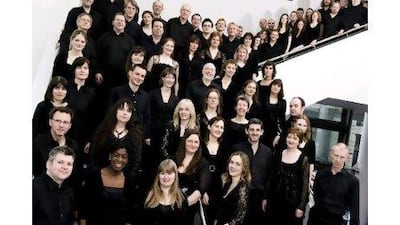It's often suggested that the classical music industry lives in a state of constant fear about the future, worried by the increasing age of its audience and the fossilisation of its centuries-old pieces. Most record stores no longer have a dedicated classical section and the major labels are generally content with reissuing their back catalogues.
But earlier this year, a staggering 33 million people watched the YouTube Symphony Orchestra finale - displacing none other than U2 as the most-viewed concert online. Meanwhile, the BBC Philharmonic teamed up with dubstep stars Nero for the eagerly awaited Dubstep Symphony. And if these events seem like gimmicky attempts to enlighten disaffected youth, consider this: late last month the US entertainment magazine Variety reported that classical music CDs enjoyed the biggest gain in sales of all genres in the first six months of this year - 13 per cent up from the same period in 2010.
Classical music, then, seems to be in tune with the masses. Perhaps some credit should be attributed to the guiding hand of journalist Alex Ross, whose books The Rest Is Noise and Listen to This are not only must-have tomes for classical aficionados, but have intrigued music fans full stop.
But what was it about the first six months of this year that specifically encouraged record sales?
"I'm not wholly sure whether this is a particular set of circumstances or a general trend," cautions John Summers, the chief executive of Manchester's world-famous Hallé orchestra. "But whatever it is, I can completely see why sales might be on the up. The classical music audience is more likely to be a CD-buying audience, whereas in pop and rock the trend has gone towards downloading and then nicking it for free. My kids are like other kids - they don't listen to music in the same way we do."
But if that appears to confirm that classical music lovers are stick-in-the-muds who rather like arranging their rows of Debussy CDs in alphabetical order, nothing could be further from the truth. Summers does think classical music audiences are rather more concerned about a particular concerto's quality and, crucially, tangibility than whether it's available the same night as an mp3. Nevertheless, there is another, more encouraging, development that suggests this year's sales figures might not be a one-off.
The Variety article reasoned that the increase was thanks to a "swarm of activity" from orchestras across the world taking matters into their own hands and releasing work on their own labels. Orchestras, indeed, like the Hallé, whose hard work has fostered a sense of ownership and belonging among its regular concert-goers (and record buyers).
"We couldn't have done this 10 years ago because the equipment was too expensive," says Summers. "But now we can produce albums we are really proud of, by programming the works in concert before we record them. And in the end, I think that's the real reason people buy the CDs: because they realise the orchestra clearly know the music inside out."
Of course, the major labels still have a part to play. Paul Westcott is press officer for Chandos, one of the world's biggest classical music imprints. He's a little wary of heralding a bright new dawn for classic music sales because, as he points out, the 13 per cent rise includes ridiculously cheap catalogue items. But Westcott is happy to confirm that classical music's naysayers have it all wrong.
"I'm 41 now, and I remember people speculating at school that classical music wouldn't even exist by the time I even got to the workplace," he says. "So I've never believed the prophets of doom. And actually, there's never been a period like this, where so many recordings are being released."
Chandos, indeed, produces an average of 10 CDs a year with the likes of the BBC Philharmonic alone. While its arrangement is a very different model from that of the Hallé - discussions are had between the label and the orchestra to agree on the repertoire - it's produced some fine work. Last week, for example, the BBC Philharmonic's new take on Bartok's First Violin Concerto, conducted by Gianandrea Noseda, revelled in five-star reviews.
"When all the pieces fall into place, great things happen," confirms Westcott. "Over the last 10 years the BBC Philharmonic has reached incredible standards and I think some orchestras do just like to concentrate on the music. Not to say that what the Hallé have achieved by themselves hasn't been wonderful. But it feels like there's room for all of us at the moment."
And as for the Hallé, Summers is certainly not fearful of the future. The National interrupts him playing Die Walküre at full blast. After the Hallé's triumphant performance of the second opera in Richard Wagner's Ring cycle at this year's Manchester International Festival, it will be released on CD next year.
"You know, I met a guy in Liechtenstein recently," says Summers, volume temporarily down. "He'd spent his life gathering the largest collection of classical CDs in Europe - 140,000, or something like that. And as much as that's impressive, he's a dying breed. You don't have to go searching for these things anymore. If you want a CD by an orchestra based in Manchester, you can easily get it. That's the difference."

